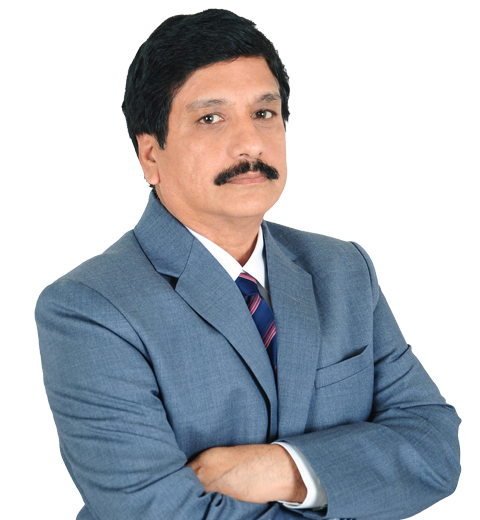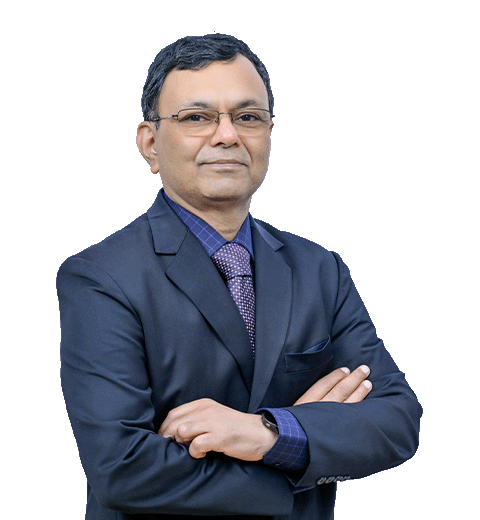Prostate cancer is the second most common cancer among men. Approximately one in eight men will be diagnosed with prostate cancer in their lifetime.
If diagnosed at an early stage, a complete cure is possible. Excellent treatment is available in the advanced stage to control and prolong the life span.
What are the Risk Factors for Prostate Cancer?
- Age: Risk increases with age. The majority of cases are discovered after the age of 65.
- Genetics: Men with close family members with cancers of the prostate, breast, ovary, colon, or pancreas have a high risk of developing prostate cancer. BRCA is one such gene mutation.
- Race: It is unknown yet, but men of African descent are 75% more likely to develop prostate cancer.
- Smoking raises the risk of developing aggressive prostate cancer.
- Diet: A lack of vegetables in the diet (especially broccoli) may
- A high calcium intake increases the risk in the diet.
- Obesity: Higher weight is associated with aggressive prostate cancer.
- Lack of exercise
- Increased sexual activity or increased ejaculation decreases the risk of prostate cancer.
Myth Busters:
- Benign prostate conditions such as benign prostatic hyperplasia (BPH) and prostatitis do not increase the risk of prostate cancer.
- High levels of sexual activity or frequent ejaculation do not increase risk.
- Vasectomy does not increase the risk.
- Aspirin and statins are used to reduce inflammation. They may reduce the risk of aggressive prostate cancer. But they are not recommended for this purpose alone.
- There is no link between alcohol and prostate cancer.
- Supplements such as vitamin E and selenium do not help.
When to Get Checked
Be proactive: Ask your doctor when you enter middle age.
It depends upon the following:
- How old you are: Start talking to your doctor after the age of 45 years. Screening can be stopped at the age of 70 years
- Family history
- Race
Pay Attention to the Following Warning Signs
- Pain may not happen until the cancer is advanced.
- A need to urinate frequently, especially at night, sometimes urgently
- Difficulty starting or holding back urination
- The weak, dribbling, or interrupted flow of urine
- Painful or burning urination
- Difficulty in having an erection
- A decrease in the amount of fluid ejaculated
- Painful ejaculation
- Blood in the urine or semen
- Pressure or pain in the rectum
- Pain or stiffness in the lower back, hips, pelvis, or thighs
It’s most important to keep the conversation open with your doctor.
10 Ways to Prevent Prostate Cancer
- Adopt an “anti-inflammatory diet” high in foods that fight inflammation, such as vibrantly colored vegetables, and low in red meat, sweets, processed meals, and dairy products.
- Reduce your calorie intake and up your exercise to keep your weight in check. A man’s risk of acquiring deadly forms of prostate cancer has been decreased by engaging in vigorous exercise within the parameters of safety for his degree of physical fitness. Its recurrence is connected to obesity.
- Keep an eye on your calcium intake. Extreme calcium intake may raise the risk of the condition. Unless your doctor has prescribed supplements, try to acquire most of your calcium from plant-based dietary sources (such as almonds, tofu, and leafy greens) instead of supplements.
- Replace red meat with fish and plant-based proteins. Red meat’s saturated fat contributes to inflammation linked to chronic diseases, including cancer. Refrain from trans fatty acids (e.g., margarine, packaged baked goods).
- Include cruciferous vegetables (like broccoli and cauliflower) and cooked tomatoes (made with olive oil), which may be advantageous in your weekly meals.
- There are several reasons not to smoke. If you do consume alcohol, do it in moderation.
- For stress, high blood pressure, diabetes, high cholesterol, and depression, seek medical attention. Treating these problems may prolong your life and increase your chance of surviving the condition.
- Megavitamin supplementation should be avoided. A multivitamin is generally not dangerous, but if you eat a nutritious diet rich in fruits, vegetables, whole grains, seafood, and healthy fats, you probably don’t need one. As some herbal supplements may harm you or interfere with your therapy, talk to your doctor before taking any.
- Unwind and embrace life. Your chances of surviving will increase, and you’ll live a longer, happier life if you reduce stress at work and at home.
- Discuss the advantages and disadvantages of screening with a PSA test and, if necessary, a rectal examination with your doctor if you are a man aged 45 or older (40 or older if you are Black or have a family history of prostate cancer).






